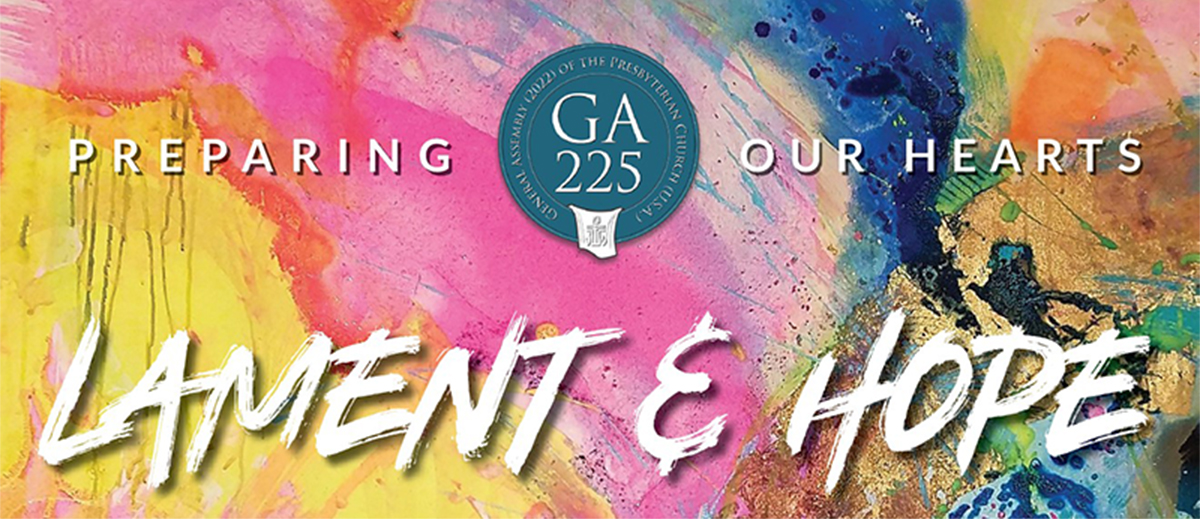
Bulletin Cover for GA225 Worship. Artistry by Suyun Son - used with permission.
Seeking decolonized worship for General Assembly 225 was a value set forth by the Co-Moderators of the 224th General Assembly, Ruling Elder Elona Street-Stewart and Teaching Elder Gregory Bentley. Bentley shared:
“Elona and I want to have a decolonized worship because we believe it is God's will that we have a decolonized church. We are aiming at creating a tent meeting, revival-style atmosphere that reflects and expresses the gifts of the whole church. Furthermore, we stood together as Co-Moderator candidates for the 224th General Assembly on the platform of the #Matthew25Vision and we believe that decolonization is an essential aspect of living into the fullness of this powerful move of God. We want to finish our term in the manner in which it started.”
The core worship planning team — the Rev. Natasha Iwalani Hicks McCray, Ruling Elder Chris Lim, the Rev. Shavon Starling-Louis, musician Phillip Morgan, artist Suyun Son and the Rev. Ruth Takiko West — was formed out of this vision and worked alongside some of the GA staff.
The GA worship team has been working for months to pull together the worship for this historic Assembly around the idea of decolonized worship. What were the thoughts behind this plan and how did it come together?
As a team made up of people entirely from the BIPOC (Black Indigenous People of Color) community, our conversations about what it means to have decolonized worship stirred things up within and among us. Being part of a denomination that is predominantly white and relies heavily on worship materials produced by dominant culture, we recognized the ways we have learned to acclimate, accommodate and adapt as a means of survival. The work of decolonization is significant, not only for people within dominant culture, but especially for those of us who have experienced colonization and its generational impact.
Throughout the planning, we have encouraged one another to be freed up to bring our whole selves to the table, to be faithful in the planning of worship for GA. In some moments, this has been beautiful and allowed us to share what God is stirring within us. In other moments, it has been a struggle, because we each carry with us experiences of woundedness when trying to show up fully as ourselves in the Church. During the planning, we’ve needed to pause, to celebrate the courage and resiliency that each person embodies, to recognize our shared humanity, and to give thanks for the gift that it is to be participating in God’s kingdom/kin-dom/kinship work together.
Decolonized worship, we’ve come to realize more clearly, is a shared work. It isn’t simply asking a BIPOC person(s) to come and read a prayer from our Book of Common Worship; it is inviting people to come and share from their context, their culture, in their own language, and celebrating and giving thanks for these offerings even when it may not be familiar or may cause rumblings in our spirit. Our hope is that we are invited to pay attention to this and to be curious, rather than to submit ourselves to quick criticism, disregard or judgment, so that we might experience the expansiveness of the Spirit alive and at work in and through one another.
Seeking to embody decolonized worship is slower work, because colonization is so multilayered and multifaceted, and it isn’t simply about enacting a process, but tending to one another along the way. It is the ability to shift a power-over dynamic to a power-with dynamic, where space is created to move and make decisions more collectively. It is recognizing that worship isn’t just the end result, but how we honor the imago dei in one another along the way. May we lean in and open ourselves to the ways Jesus is beckoning each of us to engage in the work of decolonization in our own contexts and in our own lives.
Tell me about the dynamics of this team and how everyone played a role in planning this.
Intercultural, creative, funny, real. These words come to mind when thinking about our team. We have traversed holy ground — birth, loss, health concerns, grief, and celebrations — in our time together; we have been church. Across four time zones and weekly meetings, conspiring with some of the amazing GA staff, we have been able to share in our love of Jesus Christ and of the people of God in and beyond the PC(USA), to bring worship to life.
Each of us were invited to think about worship through a particular lens: music, visual arts, embodied prayer, language integration, technology and liturgy, but the reality is that we approached it much more collectively. We got to wonder out loud together and explore what lament and hope look and feel like, what they are rooted in and how they are not mutually exclusive, but rather how they coexist for many of us.
While we often found ourselves impacted and informed by experiences of being othered, unseen and unheard, we also found it to be a thoughtful and prayerful practice of curiosity, self-interrogation and desire to include all of our communities as broadly as possible. This collaboration was an amazing encounter of brilliance and gifting that is not often acknowledged in the more narrow sense of expectations for worship.
How difficult or advantageous was it to plan for worship during a hybrid Assembly?
While there are ways in which gathering in hybrid leaves a yearning to be here or there, the beauty of planning for a hybrid Assembly and not being bound to a single location was the possibility of people from across the country and in various roles being able to participate in ways that perhaps have not been accessible before. Wanting to celebrate the diversity of the church, we were able to invite others into the center of the table, because of the flexibility that the prerecording and sharing of files and videos enables.
But the biggest blessing is that this is REAL. This is the real world that our congregations are moving through week after week as things continue to ebb and flow. Like our congregations, a hybrid Assembly has required us to be intentional and flexible. It has required us to lament when our hoped-for impacts were not able to be accomplished. It has required us to trust that our worshipful intentions are being held in the power of the Holy Spirit and will meet the people of God where they are, whether in Louisville or in other parts of the world.
What do you hope commissioners, advisory delegates and those viewing will get out of the worship times?
We pray that worship will do whatever it is that God would want for God’s people to receive. The theme of lament and hope is the grounding from which we moved, but the very nature of that theme is that we all can and do enter into the conversation from different spaces — day to day, moment by moment.
We hope that each participant will be nurtured and uplifted by the familiar, be in conversation with any discomfort, be curious about the lives and well-being of those who they are not used to considering in worship spaces and be joyful together with God — embracing the diversity and beauty God creates in all of us.
CORE WORSHIP PLANNING TEAM


Rev. Ruth Takiko West
Assistant Dean, San Francisco Theological Seminary
San Anselmo, California
Ruth is also a teaching elder in the San Francisco Presbytery, an educator, spiritual director, workshop leader, retreat planner, minister to ministers and a writer. She is working on her doctoral dissertation titled “Soul Care & Spiritual Direction: Tools to Promote Resiliency in the Struggle to Dismantle Racism.”
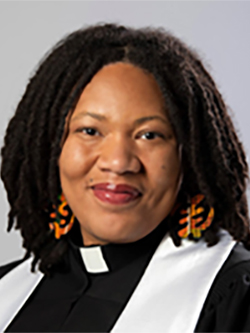

Rev. Shavon Starling-Louis
Pastor of Memorial Presbyterian Church
Charlotte, North Carolina
Shavon (she/her/hers) is from St. Petersburg, Florida, where she was raised by her grandmother, Delores. She is a justice-minded public theologian, conference preacher/speaker and church leadership consultant. Shavon is passionate about the intersection of intercultural evangelism, creative worship and anti-oppressive, inclusive church practices.
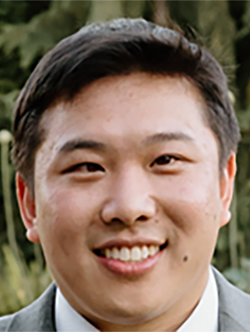

Chris Lim
Technologist and Entrepreneur
Seattle
Chris is a ruling elder at Union Church in Seattle. He is the founder of TheoTech, a company dedicated to technology entrepreneurship for the Gospel and creator of spf.io, a platform for making events accessible in many languages through captions and translation. He dreams of the day when every church is accessible in any language as a foretaste of God’s Kingdom. See projectpentecost.com.
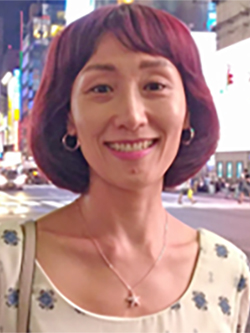

Suyun Son
Artist
Louisville
Suyun is known for her abstract expressionistic paintings that embrace and express the full spectrum of emotions. They delight, calm and challenge the viewer all the while shifting the viewer’s inherited interpretive framework. Her recent works explore the fluid and hybrid nature of our identities by bringing together her mother tongue, Korean, and her adopted tongue, English, together reconstructing them into visual elements. See suyunson.com.
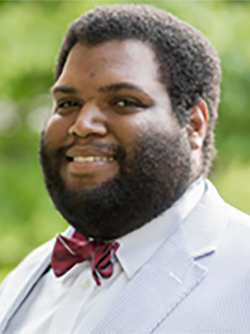

Phillip Morgan
Director of Music, Central Presbyterian Church
Louisville
Phillip has served as Director of Music at Central Presbyterian Church in Louisville since 2012. Phillip has had the privilege of leading the choir at the Presbyterian Youth Triennium, being a member of the faculty and planning teams for the Presbyterian Association of Musicians' Music and Worship Conference at Montreat and serving on the PAM executive board.


Rev. Natasha Iwalani Hicks McCray
Pastor and Artist
Seattle
Tasha and her husband Glenn’s greatest joy is being the parents of their daughters, Nia Mariko Ke’Alohilani and Kadence Kazumi Akeakamailani. She is a teaching elder in the Seattle Presbytery and co-creative with ChopSueyRoots Design. Tasha is passionate about honoring the sacredness of our shared humanity through design, story and holding space for courageous reflection and learning.
GENERAL ASSEMBLY STAFF COLLABORATORS AND CO-CONSPIRATORS
Jayne Culp // Julia Henderson // Dianna Wright // Nathan Young // Deb Davies // So Jung Kim // David Gambrell
